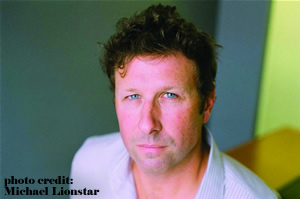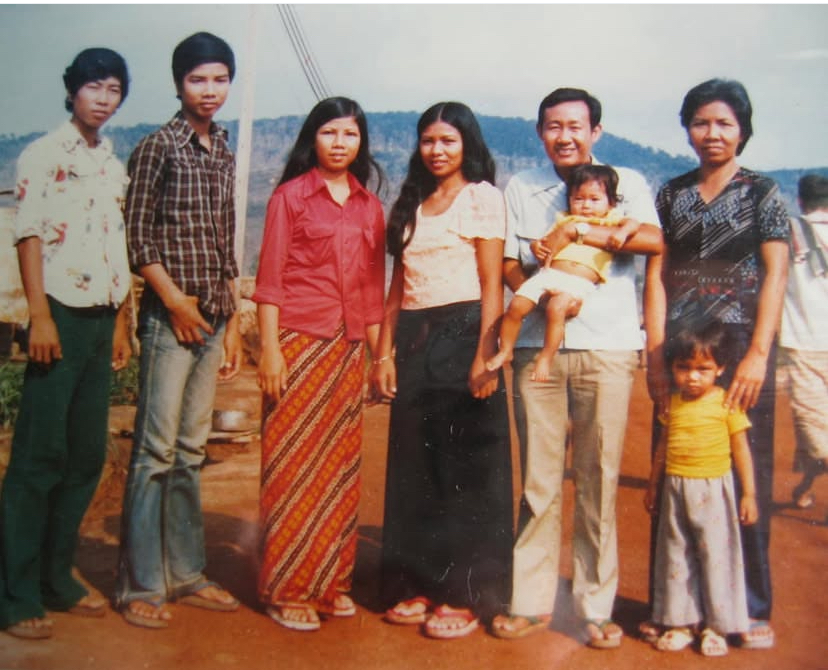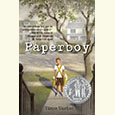In Praise of Failure
At a time of new beginnings, novelist Adam Ross contemplates his past
Generally speaking I’m a generalist. I know a little about a lot, but at this moment of new resolutions and fresh beginnings, I offer my thoughts on the only subject in which I’m an expert: failure.
That’s right: failure. Defined as follows: to fall short of success or achievement in something expected, attempted, or desired. From the Latin, fallire: to disappoint or deceive. I write these words as a man with a Ph.D. in failure, and I commenced my subject’s study on the day I decided to become a writer, a life-changing choice I made in 1986, after taking a creative-writing class my sophomore year at Vassar College. How many times did I fail? Let me count the ways.
I failed right out of the blocks. My writing instructor that fateful sophomore year, Paul Russell, accepted me into his seminar based, he later told me, on one sentence I’d written—just one—in a very long story which was such a train wreck he was forced to take extended breaks to sit on his patio, a stiff drink in hand, and contemplate whether or not he’d wasted his life in choosing teaching as a career. Spurred by his confidence, I wrote ceaselessly after that, building my entire curriculum around my interest in literature and writing, forsaking practical fields like economics and science, not to mention history and math. My college career was capped by my senior thesis, a story collection so astonishing it got me rejected by the graduate writing programs at Columbia, Stanford, and Iowa. This turn of events promptly landed me back in the room where I’d grown up—directionless, no; jobless, yes—which my father had converted into an office within minutes of my leaving for college and wanted back within six months, he warned, as I was re-assembling my futon.
Futons: the beds of failures.
 I had no idea what I was doing, no clue how to go about being a writer, but I had energy and good working habits and rose very early every morning to scribble for a couple of hours before walking down Ninth Avenue to my first real job, as an assistant to a movie producer, which sounds glamorous and absolutely was not. The movies were B-grade at best, with names like Black Scorpion III: Rise of the Ninja. I was the company’s only employee, and a more apt job title might have been VP of faxes, photocopies, and bills of lading, not to mention receptionist, duties my English degree had prepared me for beautifully. My boss was Terry Levene, a washed-up megalomaniac whose claim to fame was producing Bruce Lee’s Fist of Fear, which I haven’t seen either, though my personal favorite was Women in Cell Block 7, which I watched repeatedly. It quickly became clear that Mr. Levene didn’t have enough business to keep me busy for eight hours a day, and so it was during these recurrent dead periods that I whittled my time watching the clock, which was unforgivingly placed over my desk, playing mental games of micro-distraction to combat the epic, existential boredom. It was an effort to speed the seconds along which paradoxically stretched them out like a piece of gum pinched between teeth and fingers. I was summarily fired after four months when he discovered me reading on the toilet during one of my many extended bathroom breaks.
I had no idea what I was doing, no clue how to go about being a writer, but I had energy and good working habits and rose very early every morning to scribble for a couple of hours before walking down Ninth Avenue to my first real job, as an assistant to a movie producer, which sounds glamorous and absolutely was not. The movies were B-grade at best, with names like Black Scorpion III: Rise of the Ninja. I was the company’s only employee, and a more apt job title might have been VP of faxes, photocopies, and bills of lading, not to mention receptionist, duties my English degree had prepared me for beautifully. My boss was Terry Levene, a washed-up megalomaniac whose claim to fame was producing Bruce Lee’s Fist of Fear, which I haven’t seen either, though my personal favorite was Women in Cell Block 7, which I watched repeatedly. It quickly became clear that Mr. Levene didn’t have enough business to keep me busy for eight hours a day, and so it was during these recurrent dead periods that I whittled my time watching the clock, which was unforgivingly placed over my desk, playing mental games of micro-distraction to combat the epic, existential boredom. It was an effort to speed the seconds along which paradoxically stretched them out like a piece of gum pinched between teeth and fingers. I was summarily fired after four months when he discovered me reading on the toilet during one of my many extended bathroom breaks.
Undaunted, I soldiered on, continuing to read everything I could get my hands on and writing furiously. I took a night job bartending at an Italian restaurant named Fiasco, which appropriately described this early stage of my career and also freed up my mornings to learn my craft. The economy was depressed but I somehow made enough money to move into my own apartment, a one-bedroom loft on Manhattan’s Upper East Side with fifteen-foot high ceilings, ceiling-high windows, and a bookcase built into the exposed brick which I lined with my luminaries, imagining my first book someday nestled somewhere between Rand and Roth. By now, I had several new stories under my belt, episodic, vaguely autobiographical pieces about a young man working as an assistant to an egotistical movie producer and, after reading an article in The New York Times Book Review about the vaunted Hollins College creative-writing program, I decided once again to give grad school a shot. Confident in my new work’s brilliance, I applied to the very same esteemed programs I’d been dinged by the year before, along with several other top-tier schools like the University of Wisconsin, Syracuse, UNC—eleven in all—and just as surely as I’d failed before I failed again, nine rejections arriving in slim envelopes that spring with just two exceptions: the University of Colorado at Boulder and Hollins. I accepted the latter’s invitation triumphantly.
By 37, I’d published only one work of fiction, a short story for which I was paid $200.
My year-long M.A. at Hollins, followed by my two-year M.F.A. at Washington University, followed by an aborted, one-year stint in the Ph.D. program (so I also failed at becoming a professor) gave me the gift of time to focus on my writing but was only a brief reprieve from my continued misadventures. It was at Wash U, for instance, that I discovered my novel-in-progress, the one I’d started at Hollins and had promised my then blushing, idealistic, and tragically naïve fiancé, Beth, would catapult me to literary stardom, was in fact a failure-in-progress, a turkey that I ultimately abandoned when we arrived in Nashville in 1995 so that practical Beth, who was now unfortunately married to unpublished me, could attend Vanderbilt Law School, and where I once again found myself in the food-service industry, managing the bar at a now-defunct restaurant, whose name, like Fiasco, had all sorts of ironic connotations regarding my life: Cakewalk.
But I didn’t start my shift until ten a.m. and got a lot of writing done before work. In fact, earlier that summer I’d started what I thought was a short story with the following line: “When David Pepin first dreamed of killing his wife, he didn’t kill her himself. He dreamed convenient acts of God.” The novel that would become Mr. Peanut took a mere thirteen years to write. And sandwiched in between that period marked by deeply instructive years as a columnist and editor at The Nashville Scene and as a teacher at the Harpeth Hall School, I had numerous stories rejected by countless literary magazines; wrote three full-length screenplays, none of which were produced, let alone even considered by a single studio; was a finalist for the Chesterfield Screenwriting Fellowship, the Provincetown Fine Arts Fellowship, and was twice an alternate but never never a winner of the Philip Roth Fellowship at Bucknell, awards that would’ve provided desperately needed money and time to finish my novel but whose committees regularly judged it unworthy; I was annually rejected by Stanford’s Stegner Fellowship and Vassar’s Rose Fellowship, my alma mater, every year until I reached the latter’s age limit of 36; I was passed over by many big-time literary agents, the person to whom I’d sent an excerpt of Mr. Peanut at Dunow, Carlson & Lerner dismissively telling me that I “hadn’t found my voice yet” and, considered with all these other flops, added to the long list of seemingly incontrovertible data suggesting that this enterprise called my life was an unmitigated bust.
By 2004, the year I was thirty-seven, I’d published only one work of fiction, a short story in The Carolina Quarterly for which I was paid $200.
Still, there was something I repeated to myself over the years that became a mantra of sorts; it comes from William Blake’s Proverbs of Hell, and it goes like this: The fox blames the trap, not himself. Picture him for a moment: caught, bleeding, cursing the snare’s iron jaws, and his fox god.
I hope you see that this is not an essay about holding on to your dreams or the importance of dusting yourself off every time you get knocked down.
Here we have arrived at the point of this little essay, at the etymological meaning of failure, at its Latin root: fallire: to disappoint or deceive. During all those difficult years, I repeated this sentence to myself as a safeguard against bitterness; to urge myself on; to wake myself up; to recognize that the anxiety felt by those closest to me (my wife, first and foremost) regarding my lifelong pursuit was understandable and thereby deserving of recognition because no one on this planet achieves anything alone. Most of all it was to remind myself that I had to work harder because I alone had chosen this dream and all the disappointments that came with it; that it was up to me not to share them; that I didn’t deserve self-pity or anything extra to tide me over in the meantime. But should the meantime become forever, which seemed like a distinct possibility as the years wore on, I said it daily to greet my life as a bartender, editor, journalist, or teacher with a blessed cheerfulness, with vigor and conscientiousness, for these jobs, however dirty or wonderful, gave back to me as much as I gave to them and walked hand in hand with my pursuit, however futile. And at this I occasionally failed, too.
I hope you see that this is not an essay about holding on to your dreams or the importance of dusting yourself off every time you get knocked down. You’ll do that anyway. We all do. We’re not so easily defeated or felled. We have extraordinary pain thresholds, remarkable degrees of fortitude and endurance. What I am conveying is this: if you don’t remember to take full responsibility for your failures, to understand how inextricably interlocked they are with your successes, then you will never authentically succeed. You’ll have closed one eye to the truth of how you got from point A to point B, or failed to do so, and thus risk losing your way in the fog of unknowing. You will lack self-knowledge. You’ll deceive yourself by attributing your achievements only to yourself, failing to recognize the enduring faith of your families, the timely encouragement of spouses and friends, the vital fellowship of colleagues, and the fickle nature of luck, thereby destroying your capacity for humility. And when things do go wrong, rather than step up and say I chose, you’ll disappoint yourself by blaming the trap, denouncing others for your state of being, pleading ignorance of the fine lines, pointing out overwhelming circumstances, and ascribing the chaos of the world to whatever—to something else—when in fact it was up to you to give it order. This path leads to the Kingdom of If Only whose denizens speak the language of shoulda, coulda, woulda. The horror of this place isn’t that it lacks an exit; it’s that its inhabitants have forgotten there is one.
This is the time to fail. As the year begins, it’s time to make new resolutions, which you’ll probably fail to keep unless you make this one first: go forth and fail brilliantly.

Copyright (c) 2011 by Adam Ross, author of Mr. Peanut and Ladies and Gentlemen. All rights reserved. This essay was adapted from a commencement address to the Class of 2011 at the Harpeth Hall School in Nashville and first appeared at Chapter 16 on January 3, 2012.


